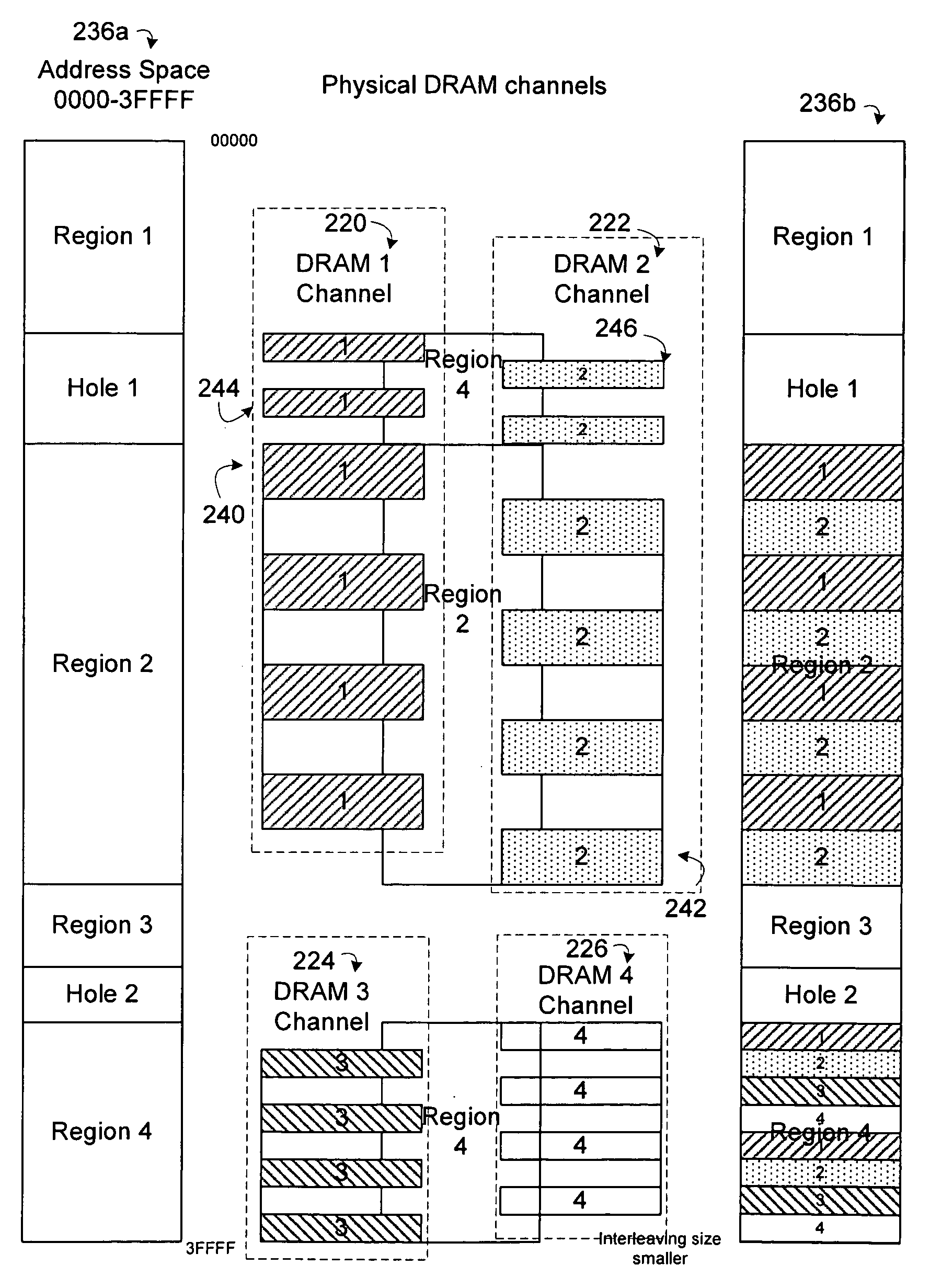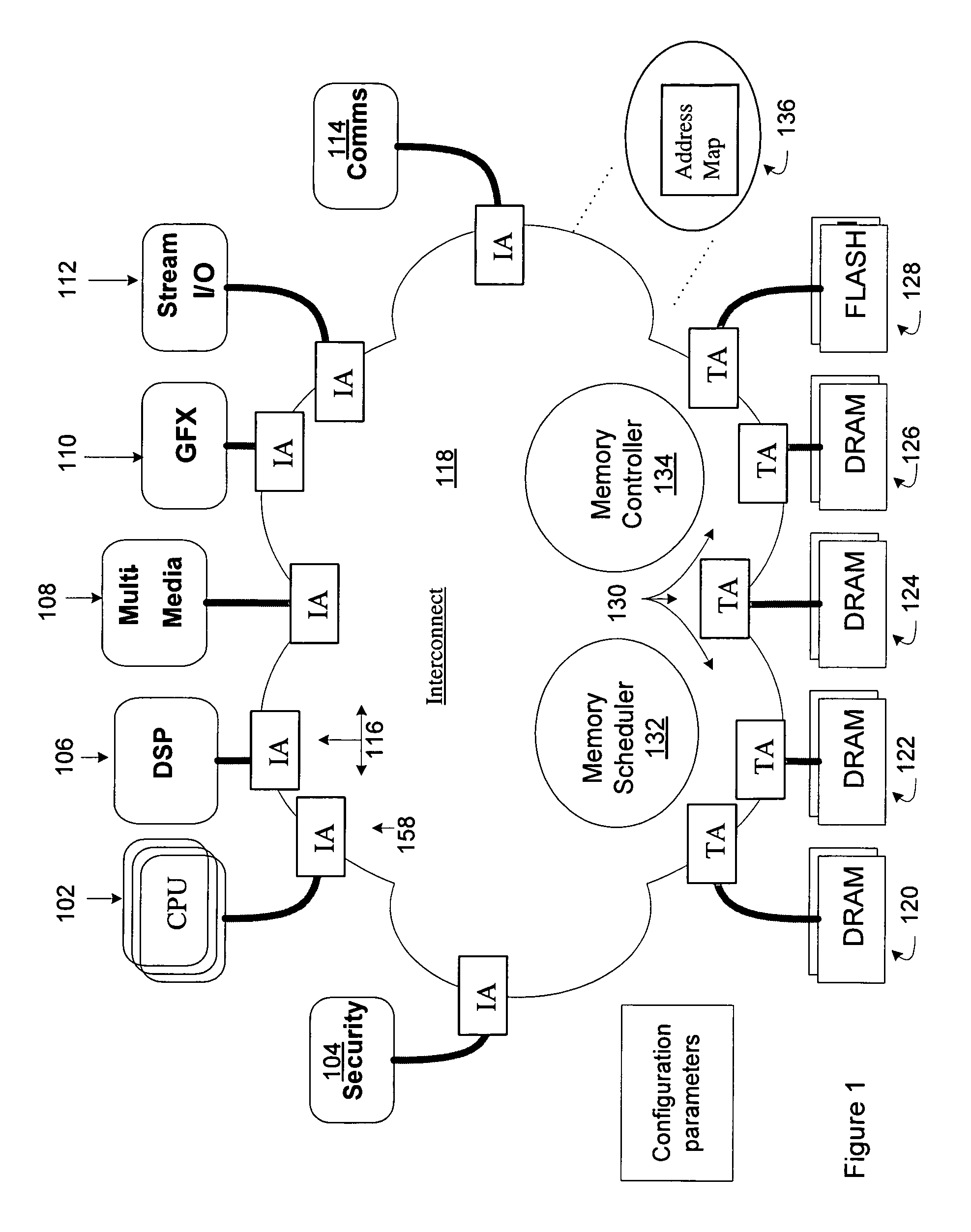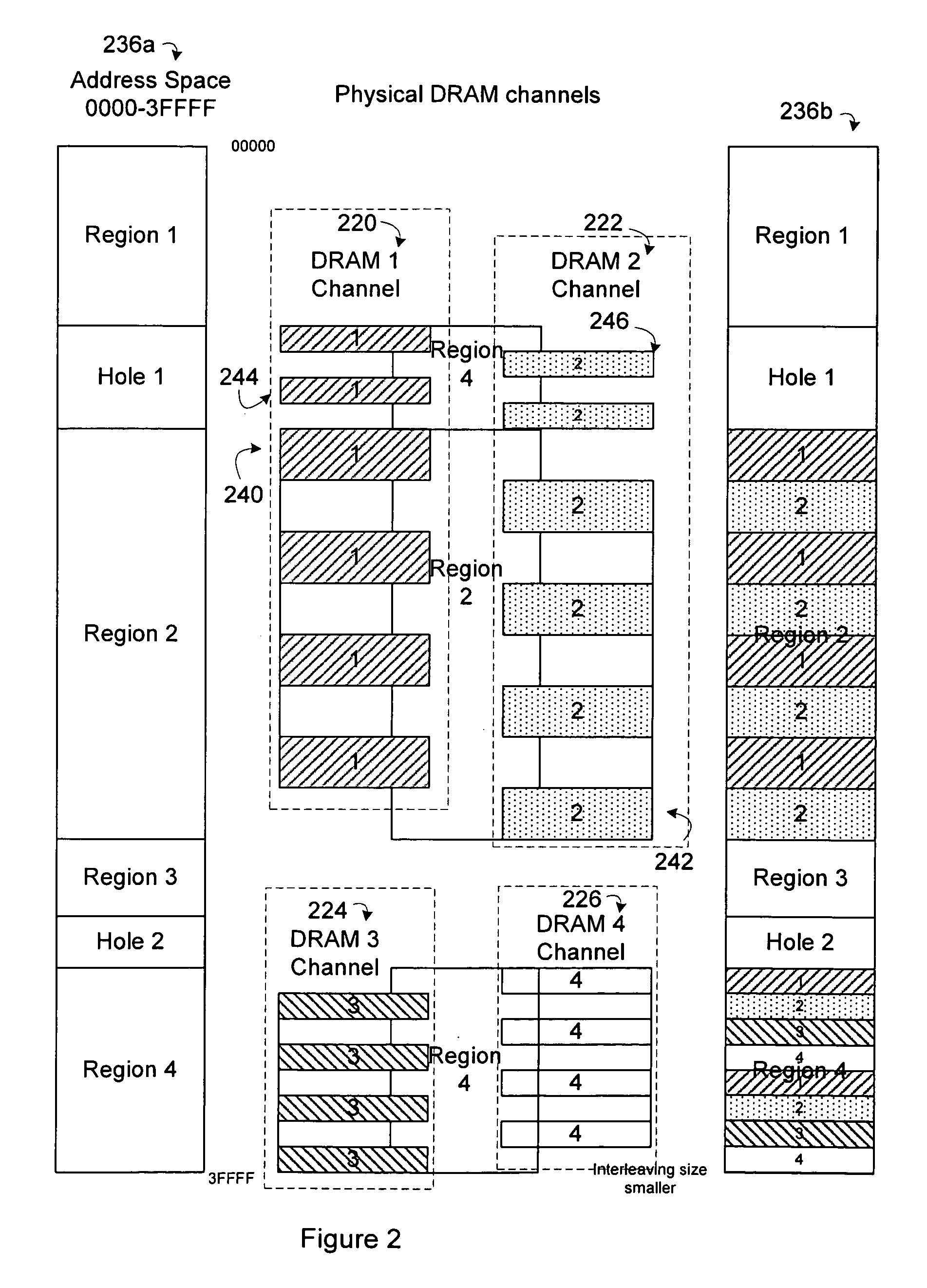Interconnect implementing internal controls
a technology of internal control and interconnection, applied in the direction of micro-instruction address formation, memory address/allocation/relocation, instruments, etc., can solve the problems of increasing traffic and routing congestion, increasing design and verification complexity, and software and system functional blocks
- Summary
- Abstract
- Description
- Claims
- Application Information
AI Technical Summary
Benefits of technology
Problems solved by technology
Method used
Image
Examples
case 1
[0158] An outgoing branch carries target threads (i.e., the initiator threads to target threads mapping happens at this thread splitter module). In this case, each target thread needs its own turnaround queue. Whenever an m_ack_req signal is set to 1 on the dlout for the corresponding thread, the turnaround queue stores which (incoming) thread the acknowledge signal belongs to. When an s_ack_req_return signal is set high on the dlout, the turnaround queue is popped and routes the s_ack_req_return signal back to the correct ACU.
case 2
[0159] An outgoing branch carries initiator threads (i.e., no dynamic thread mapping) and the serialization thread merger unit is within the same cycle boundary. In this case, if the outgoing request has m_ack_req set (from the RS buffer, the signal won't be on the dlout) and the request is successfully sent, an s_ack_req_return is generated and sent to the corresponding ACU for that initiator thread. Thus, the serialization merger is within the same cycle boundary, so accept signal can be used as ack_return.
case 3
[0160] In this case the outgoing branch carries initiator threads and the serialization thread merger unit is in another cycle boundary. In other words, there is a PP between this RS branch and the serialization merger. In this case, the s_ack_req_return signal will be present for some or all of the initiator threads. If the signal is not present, there will not be an ACU for that thread. The s_ack_req_return[thread] signal bit needs to be sent directly to the ACU. Thus, the serialization merger is in another cycle boundary, so ack_return_ signals are present and can be used directly.
[0161]Some thread splitter threads may have m_ack_req signals on outgoing initiator threads without a corresponding ACU or a corresponding s_ack_req_return signal. In this case, the initiator thread is not doing channel splitting, but some downstream thread splitter unit is performing channel splitting.
[0162]If the RS din link has s_ack_req_return, then dlout link's s_ack_req_return value needs to be pa...
PUM
 Login to View More
Login to View More Abstract
Description
Claims
Application Information
 Login to View More
Login to View More - R&D
- Intellectual Property
- Life Sciences
- Materials
- Tech Scout
- Unparalleled Data Quality
- Higher Quality Content
- 60% Fewer Hallucinations
Browse by: Latest US Patents, China's latest patents, Technical Efficacy Thesaurus, Application Domain, Technology Topic, Popular Technical Reports.
© 2025 PatSnap. All rights reserved.Legal|Privacy policy|Modern Slavery Act Transparency Statement|Sitemap|About US| Contact US: help@patsnap.com



